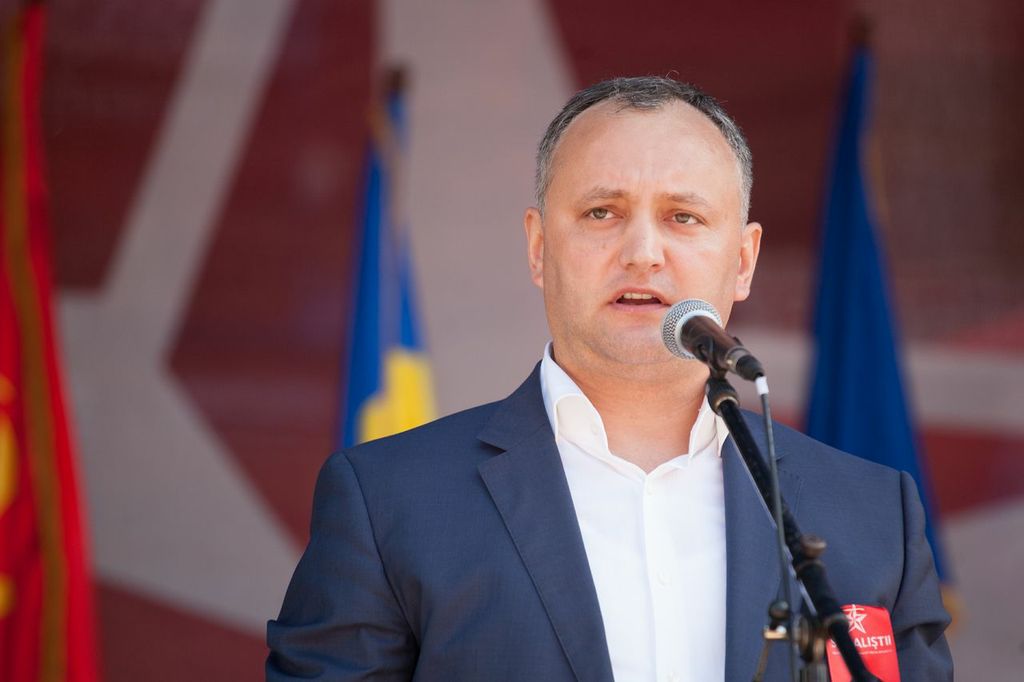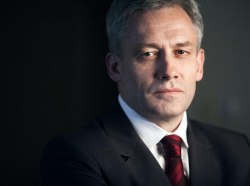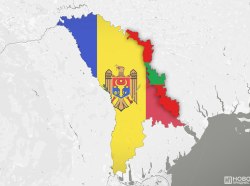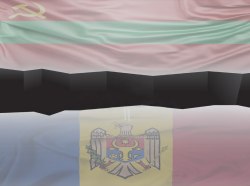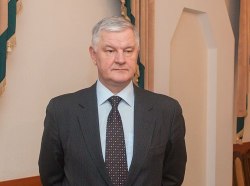The meeting of the presidents of Russia and Moldova, Vladimir Putin and Igor Dodon, was held in Moscow. The two leaders discussed the implementation of the agreements reached at the summit talks in January 2017, socio-economic cooperation and regional issues of current importance, including the Moldovan-Pridnestrovian settlement. Speaking to his Moldovan counterpart, Vladimir Putin called the issue of Moldovan-Pridenstrovian settlement sensitive and important.
Igor Dodon said in an interview with Russia's news agency TASS that Moldova would not survive as a state unless it solved the Pridnestrovian problem. «Our country has a future only if it remains integral, together with Gagauzia and Pridnestrovie. If one of these parts is removed, Moldova will not survive as a state," said Dodon.
However, Pridnestrovie does not accept such a solution to the problem. The foreign policy of the Pridnestrovian Moldavian Republic is not subject to change. As Pridnestrovian President Vadim Krasnoselsky has repeatedly maintained, the Pridnestrovian people gave their voice for Pridnestrovie's independence and subsequent integration into Russia as early as 2006. «We see no need to hold any other referendums on this issue. Our people have made their choice," Vadim Krasnoselsky previously said.
Pridnestrovie's political experts and scientists also express their views on this subject. The head of the political science department of Shevchenko Pridnestrovian State University (SPSU), Ilya Galinsky, noted, analysing Igor Dodon's interview, there seems to be a new «saviour» of Moldova, who wants with Russia's assistance, recommendations and support in exerting pressure on Pridnestrovie to preserve and strengthen the Moldovan statehood rather than to solve the «Pridnestrovian problem». «Dodon does not understand that it is not Moldova's association with Romania that scares Pridnestrovians the most, but rather Moldova having actually turned into a monoethnic state in which the international Pridnestrovie will not be able to survive," said Ilya Galinsky.
According to Dodon, despite different political views, he has agreed with the parliament and government to adopt a common position on Pridnestrovie.
Meanwhile, as Novosti Pridnestrovie has already reported, various political forces and branches of power in Moldova are playing «a good cop-bad cop» situation with Pridnestrovie. While the Moldovan government, which has real authority in the country, are taking measures to tighten the blockade of the PMR, Igor Dodon is putting a good face towards, first of all, Moscow rather than Pridnestrovie.
«Kishinev traditionally presents the problem of Moldovan-Pridnestrovian settlement as a specific issue that can be easily speculated about when appealing to Russian colleagues, EU colleagues or others without ignoring, at the same time, Pridnestrovian inhabitants and authorities," said ex-foreign minister of the PMR Vladimir Yastrebchak, commenting on Dodon's statement.
The Moldovan president maintains it is time to solve the problems affecting the livelihoods of ordinary people, repeatedly announces his «conciliatory initiative» — without revealing, however, its essence — and tries to make use of the authority of the church, asking for support from Patriarch Kirill, while the government of Moldova is preparing to deploy its law enforcers at the Pridnestrovian-Ukrainian border and tighten the economic blockade of Pridnestrovie.
Whether this is a purposeful alliance of various political forces of Moldova or the Moldovan president is simply seeking to earn additional political capital on the subject of Moldovan-Pridnestrovian settlement remains to be assumed. In both cases, the subject matter and colouring of statements by the Moldovan leader must, on the one hand, make a positive impression, present him as a «softer” politician who is more prone to compromise than Moldova's right-wing establishment, and on the other hand, he cannot give rise to accusations of him sympathising with Pridnestrovie too much — it is necessary to make it clear he is also in favour of the so-called «reintegration».
Both variants may actually be in use. Igor Dodon is trying to increase his popularity and fill the niche of allegedly the only politician with whom the Pridnestrovian leadership is ready to carry on a dialogue. His frequent visits to Moscow suggest that he will be able to enlist Moscow's support for his «reintegration» plans. And these statements that the Moldovan statehood cannot exist without the PMR only increase the importance and value of Dodon's «reintegration mission» and make him more significant in the eyes of the Moldovan population.
And, on the other hand, amid pacifying rhetoric, which makes semblance that an actual dialogue is being carried on with Pridnestrovie and Moldova is ready to seek a compromise, the ruling pro-European coalition can be tightening the economic blockade of the republic.
This is similar to a unique political symbiosis in which each Moldovan political force receives its bonus, and the only losing side is the inhabitants of Pridnestrovie.
Whether this tactic is actually convincing remains to be seen. Russia has other channels of obtaining information about the state of Moldovan-Pridnestrovian relations. The most evident of them is diplomatic. Russia's deputy foreign minister Grigory Karasin has recently visited the PMR and Moldova and learnt directly from President Krasnoselsky the attitude of the Pridnestrovian side towards Moldova's unilateral actions.
But while the leadership and diplomats of the PMR are defending the country's interests on external information fronts, one must remember that although Dodon's messages are aimed at the Moldovan and Russian audience, Pridnestrovians become familiar with his statements and interviews as well.
It seems unlikely, however, that the country's inhabitants can be persuaded that the Moldovan side is actually ready to a compromise despite the blockade, various restrictions and discriminatory measures. Just recall the incident that took place on 14 March in Kishinev during in the course of communication of Moldova's chief negotiator Gheorghe Balan and the elaborately constructed image of the Moldovan side seeking to find a consensus during negotiations will dissipate as a mirage.
The situation in which Moldovan journalists ban Moldova's vice premier from speaking Russian clearly shows that the problem of Moldovan-Pridnestrovian settlement does not only rest on political differences and different civilisation guidelines of the two countries, and the language issue is not some «phobia» from the past, but the real problem of present-day Moldova.
Sergey Goncharov.
The views of the author do not necessarily reflect those of the agency.

